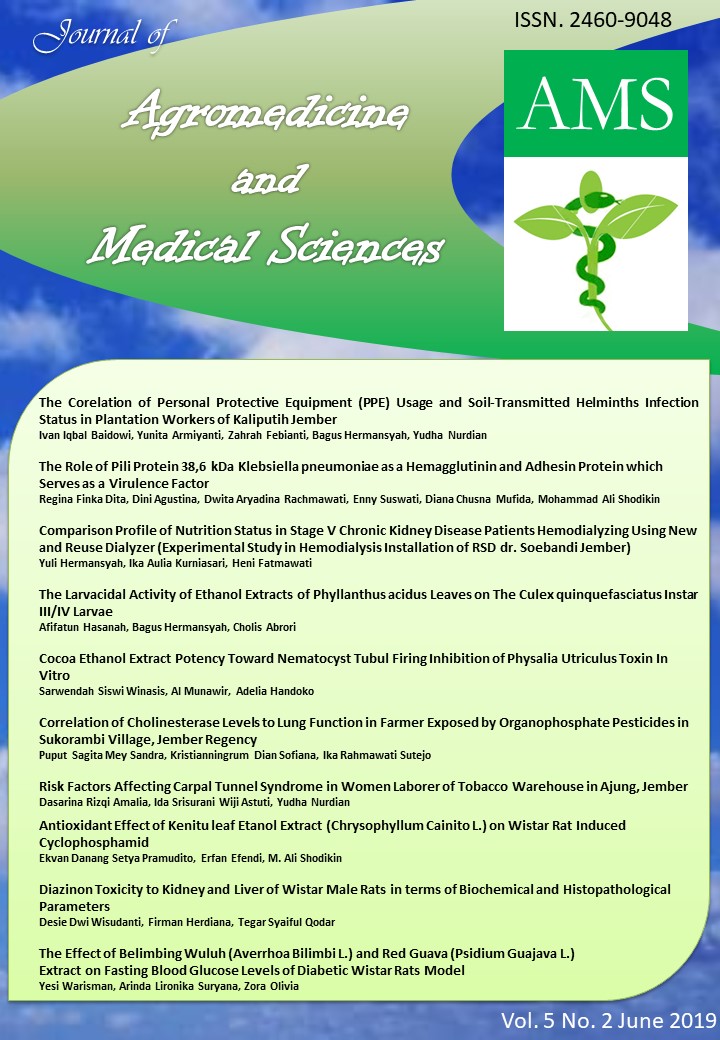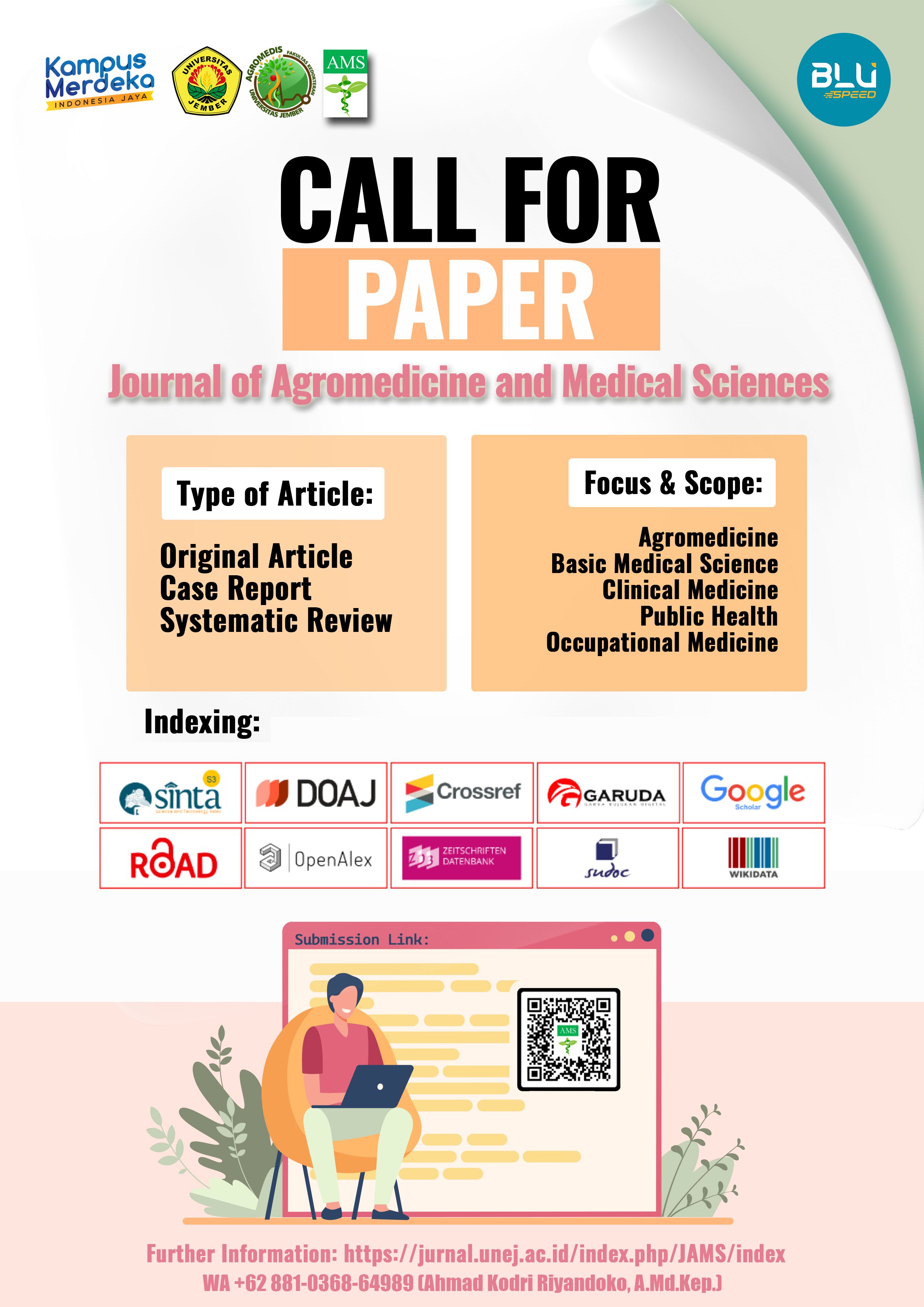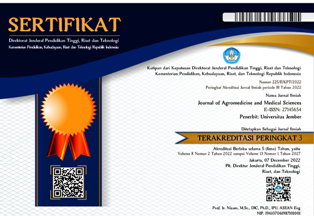Correlation of Cholinesterase Levels to Lung Function in Farmer Exposed by Organophosphate Pesticides in Sukorambi Village, Jember Regency
Abstract
Abstract
Most of the Indonesia population work as a farmer. Pesticides are used in agriculture sector for pest and plant diseases. Pesticides can cause intoxication. The World Health Organization (WHO) estimates that 1-5 million cases of pesticides poisoning among agricultural workers occur in developing countries. Indonesia pesticide poisoning cases reach 771 cases. Organophosphate enter the body through inhalation. Organophosphate pesticides work systemic to inhibit the cholinesterase enzyme causing lung function disorders. The purpose of this study was to analyze the correlation of cholinesterase levels to lung function in farmers exposed to organophosphate pesticides in Sukorambi Village, Jember Regency. This is an observational analytic study using a cross sectional design. Cholinesterase levels test using the DGKC method to determine the presence of poisoning, while for lung function test using spirometry with FVC, FEV1 and FEV1 / FVC ratios as parameters. The results of the test in 30 samples showed 14.33% (4/30) abnormal cholinesterase levels or decreased. Lung function test showed 20% (6/30) had obstructive disorders, 43.33% (13/30) restrictive disorders and 36.67% (11/30) were normal. Data analysis using chi square showed a significant relationship (p = 0.049) between cholinesterase levels and lung function. Conclusion: There is a significant relationship between the level of cholinesterase to decrease in pulmonary physiology of farmers exposed to organophosphate pesticides in Sukorambi Village, Jember Regency.
Keyword :Organophosphate, cholinesterase level, lung function








_ENG1.png)
_ENG1.png)



















